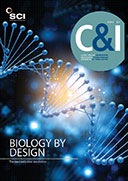|
‘My visit to India was an eye opener; the Indian Chemical Industry has made huge advances in chemical manufacturing with superb facilities that comply with stringent environmental protection standards. Some of the chemical hubs in Gujarat and Vapi are amongst the best I have seen anywhere in the world.’ |
Wikipedia states that a ‘trade mission is an international trip by government officials and business people that is organised by agencies of national or provincial governments for the purpose of exploring international business opportunities’. Business people who attend trade missions are typically introduced both to important business contacts and to well-placed government officials. A trade mission is a way in which countries or organisations can seek out potential buyers and sellers, usually after significant market research.
NEPIC has been encouraging companies from across the chemical process industry supply chain to join an annual trade mission to India for a decade. One of our key goals, with both financial and organisational help from the Department for International Trade (DIT), is to raise the international awareness of the process industry capabilities in the UK north-east.
Through this work we have recognised the importance of working with local trade associations, in this case the Indian Chemical Council (ICC), Consequently, we have encouraged trade missions from the UK to go to India at the time of the ICC Annual Outlook Conference, when so many leaders and decision makers from the chemical process industry are gathered together. Those attending range from legal and patent agents to logistics and engineering companies; from pharmaceuticals and speciality companies to polymers and petrochemicals, including the supporting utilities such as water management and port operators.
One of the main benefits is the support they receive partners in India such as ICC, Vapi Industries Association, Karnataka Drug and Pharmaceutical Manufacturers Association (KDPMA) and PlastIndia Foundation – to target and meet the ‘right’ companies. In the network of our partners we nearly always know the person they need to meet – which can dramatically speed up the route to new markets.
‘Since becoming involved with NEPIC the market penetration of HGF in India has accelerated substantially relative to where it would have been had we undertaken our marketing activities independently,’ said Jonathan Atkinson Partner at HGF Ltd, a firm of patent and trademark attorneys. ‘We consider that we have potentially gained several year’s advantage by benefitting from NEPIC’s and their partners’ insights.’
Similarly, James Robson of Micropore Technologies and Exwold said: ‘I had tried for a few years to get to see someone senior in an Indian Company that trades globally and had failed. I happened to mention this to Stan Higgins and his team, whilst on a trade mission in India, some years back and within half a day most of that company’s board members came to meet me! What became clear was the deep respect and regard that NEPIC and also UKTI [now DIT] have within the Indian Chemical Industry. A deep relationship that is only possible with years of mutual support.’
Ian Stark, CEO of Chemoxy International, commented: ‘We are working on several projects with Indian companies including the provision of a European manufacturing base for one company using Chemoxy’s toll manufacturing business. We are also in discussions for a licensing agreement for technology for an innovative but relatively small Indian chemical company. My visit to India was an eye opener; the Indian Chemical Industry has made huge advances in chemical manufacturing, with superb facilities that comply with stringent environmental protection standards. Some of the chemical hubs in Gujarat and Vapi are amongst the best I have seen anywhere in the world.’
After his first foray into the Indian market, Mark Taylor, director of Industrial Technology Systems (ITS), said: ‘My eyes have been opened to the highly developed chemical process sector in India. Furthermore, the specialist services in automation, as provided by ITS, are in demand. Through the contacts the mission organisers already had we identified a considerable number of business leads and we hope to win business from some of these.’
When regular market visits take place relationships can be built between the organising body and the in-country trade associations. They can then add value by helping each other’s members/participants to do a light touch due diligence on companies that do not know each other, providing summary information about performance and capabilities and sometimes even issues such as technical capability and financial performance. Health and safety and environmental and Responsible Care issues can also be raised.
Our experience shows that companies coming to India for the first time should focus initially on identifying potential business partners. Irene Allcroft, CEO of CatalySystems, has been on two supported trips and reported: ‘I followed the mission organisers mantra of seeking delivery partners in India and over the last couple of years have now visited India many times to cement these relationships. In 2015 we entered into a contracting relationship with an Indian partner to deliver our Gyrecat technological water treatment solutions into India.’
NEPIC took a party of 21 executives from the chemicals sector and its supply chain on a DIT supported trade mission to India during February 2017. In week commencing 19th June 2017 will be hosting a trade mission to the UK from India that will be organised by ICC and KDPMA.




